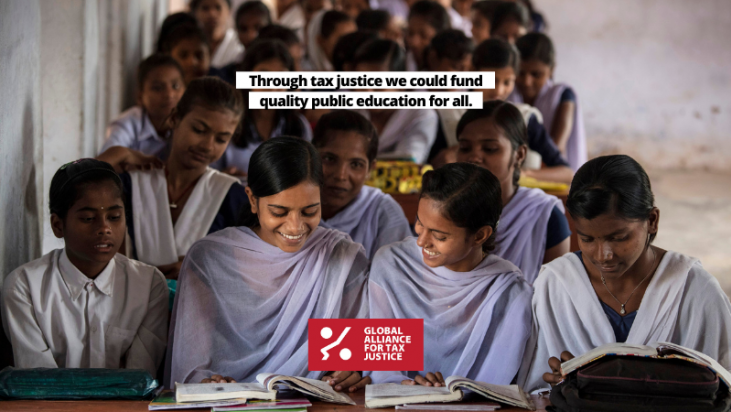World leaders have committed to a brighter future in 2030, by providing inclusive and equitable quality education at all levels. Yet, the world is missing dozens of billions to finance this essential ambition. With less than a decade to reach the landmark year 2030, the Member States of the United Nations will likely miss their goal of a quality education for all if governments do not harness and maximise all available resources to finance education. Governments will miss their goal if their resources continue to pile up stashed in tax havens. In this scenario, developing countries, vulnerable groups, and women and girls will continue to pay the higher price of tax avoidance. We need tax justice to finance education!
By Caroline Othim, Global Policy and Campaigns Coordinator – Africa at the Global Alliance for Tax Justice and Co-chair of GATJ Tax and Gender Working Group
In latest NORRAG Special Issue No 5 on Domestic Financing: Tax and Education, published in November, researchers, policymakers, practitioners and advocates examine the need to increase the size of the public purse and the share that is dedicated to education. They argue that in order to deliver sustainable and equitable public funding for education, states need to change domestic taxation regimes and international tax frameworks. In addition to quantitative shifts in funding, questions are addressed regarding how domestic financing can foster equality and inclusion in education where policy, programs and local initiatives are carefully designed and implemented in ways that address these concerns.
Questions of financing education are even more pressing as we face the consequences of COVID-19 and the impact of lockdowns globally. This pandemic is radically changing school attendance and learning, as well as the amount of the education spending available from a diminished tax base.
If properly implemented, tax and education are the most powerful tools to reduce inequalities
Education is one of the strongest tools a government has to reduce inequality, lifting up the poorest citizens and levelling the playing field. Tax is the key building block of societies. Taxes are one of the most powerful tools we have to fund social services, including education — and the most equitable, if properly implemented. Domestic resource mobilisation through taxation is the most sustainable source of government revenues that pay for the vast majority of public services that societies rely on. It is high time governments prioritise tax justice, to bridge the financing gap in education, and progressively raise and spend more resources on the work and services that women need.
Yet, a broken tax system allows transnational corporates to minimise their tax burden by shifting their profits to offshore tax havens and secrecy jurisdictions. In addition, many of these Global South countries have unsustainable public and private debt levels leading to high repayments, austerity measures as a result of the International Monetary Fund and World Bank’s loan conditionalities of the past decades led to reduced public expenditure and investment in public services like education. If tax injustices are not redressed, inequalities will continue aggravating in education and in society.
A human rights based approach is needed when addressing education (and tax), one that underlines the need to redress historical and structural inequalities in order to provide access to quality education at all levels. To achieve equal access to good quality education, we need to tackle wide-ranging and persistent inequalities in society and should include a stronger focus on how different forms of inequality intersect to produce unequal outcomes for marginalized and vulnerable groups.
Tax justice is about fairly raising and spending taxes. We need tax justice now because it could fund a better education for all. Governments need to take action now. They need to maximise all available resources and allocate adequate resources to the education sector in order to deliver the commitment on education for all. A progressive taxation and spending system can raise significant revenue.
